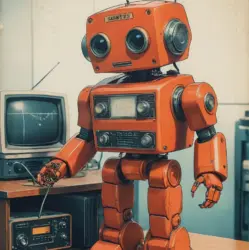Human pose estimation is something useful for robotics/programming as you can see what position a person is in a picture. For last weekend’s Hackrithmitic I did an experiment for fun using computer vision pose estimation. To start with I found several possibilities with available libraries:
- Tensorflow js has been used to say, don’t touch your face, but it takes a massive amount of cpu.
- Openpose is a popular one, only licensed for noncommercial research use, and there is a Opencv example for it that doesn’t quite show how to use it.
- AlphaPose is supposedly faster and has a more clear license and possibility for commercial use – if you want that as a possibility. I checked out the install instructions and worked but for “python3” instead of “python”. It also misses obvious step of installing cuda for your Nvidia system before running.
- GluonCV is another, which seems more user friendly. This one I was able to get running in a few minutes with their example:
